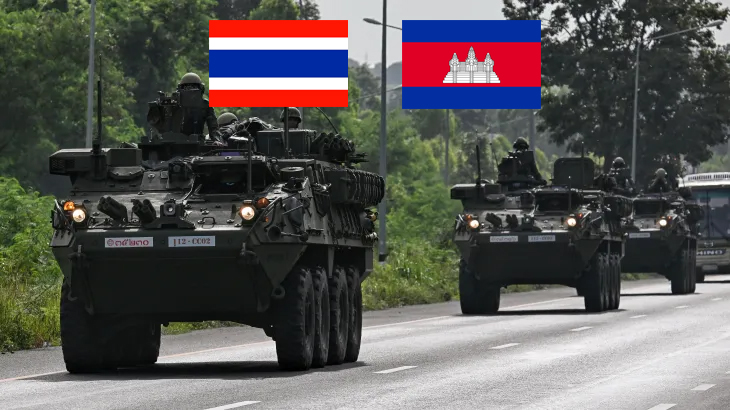Thailand Opened Fire - Cambodia had No Choice but to Defend Itself
A dangerous situation got worse along the border between Cambodia and Thailand early Thursday morning. This could be the worst armed conflict between the two countries in over ten years.
INSTRUCTION
A senior Cambodian military officer claims that Thai forces fired on Cambodian soldiers close to the centuries-old Ta Mone Thom Temple, a Khmer historic monument in the Oddar Meanchey province that is entirely within Cambodian borders. Thai troops reportedly crossed the border and blocked access to the site, causing Cambodian forces, who were stationed there to monitor the area in accordance with long-standing border protocols, to be fired upon without provocation.
Cambodia did not open fire. Thailand did.
Let that be clearly understood. This was not a border misunderstanding. This was not a mistake. This was a deliberate military act — a calculated move by Thai forces to provoke confrontation and shift blame.
Cambodian forces retaliated with a tactical counterattack that was intended only to drive out the intruder. Since the introduction of a memorandum of understanding (MoU) in 2000, which was specifically signed to prevent similar situations, the conflict represents the most significant breakdown of peace in the border zone.
But Thursday’s events are not isolated. They are part of a years-long pattern of Thai provocation, unauthorised patrols, airspace violations, political, economic pressures and false accusations, all aimed at asserting control over contested areas and projecting dominance over a smaller neighbour.
In contrast, Cambodia has continuously shown caution. Cambodia has consistently called for bilateral engagement, advocated mutual respect for the MOU, and cautioned of the hazards posed by unilateral military movements, notwithstanding the unresolved condition of some border zones, which are made more difficult by the legacy of landmines from the conflict.

Those warnings have been ignored.
This time, Thai troops not only broke into Cambodia, but they also opened fire, barricaded entry to a site of worship, and compelled a military reaction. That action has grave ramifications: Thailand has adopted an aggressive stance against a sovereign state, which may jeopardize the peace in the ASEAN area as a whole as well as between Phnom Penh and Bangkok.
The government of Cambodia has already stated its stance. We don't look for conflict. We don't act aggressively. As a post-conflict nation, we are still getting over decades of civil unrest and violence. However, that does not imply that we will surrender when attacked. It is a fundamental right to defend one's homeland; it is not an act of war.
Now, the international community must decide where it stands. Will ASEAN and the UN remain silent as one member state violates the sovereignty of another? Will Thailand’s military power and economic influence once again shield it from scrutiny? Or will regional and global leaders finally hold Bangkok accountable for its actions?
Although it is obvious who fired first, that is not the only issue here. It concerns whether or whether smaller nations like Cambodia can coexist peacefully with their bigger, more powerful neighbors. The question at hand is whether international agreements have any real significance.
Cambodia has shown patience. We have chosen peace. But we will not be passive in the face of bullets.
This conflict was initiated by Thailand. Cambodia is protecting its citizens, its boundaries, and its honor as a nation. The world shouldn't mistake silence for neutrality or aggressiveness for defense.

